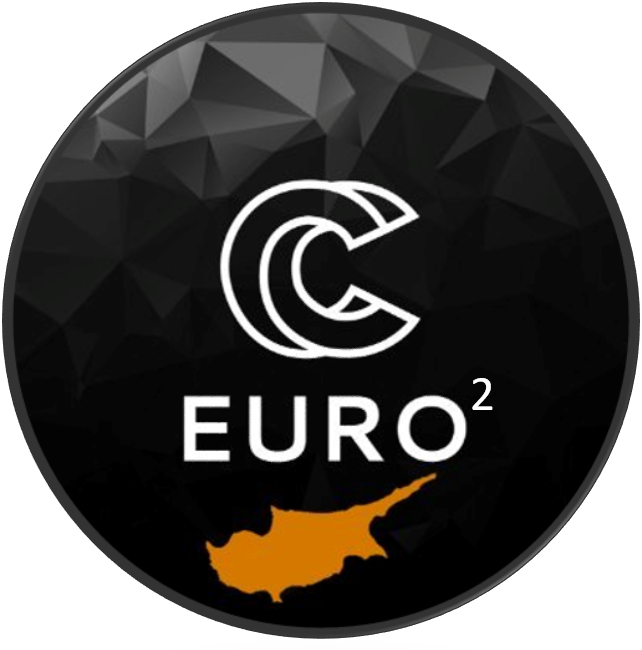Date and Time: Thursday 3 August 2023, 10:00-12:30
Location: The Cyprus Institute
This event is part of the EuroCC2 project and the National Competence Center training activities.
Agenda
- 10:00 – 10:10: Opening Remarks, Professor Constantine Dovrolis
- 10:10 – 10:20: Vasiliki Panteli
- 10:20 – 10:30: Extending Generalised additive models to Neural basis models for mortality rate
- Intern: Evangelos Georgiadis
- Description: The project’s aim is to improve the state of the art models currently used in the industry about predicting the mortality rate according to different weather conditions like temperature and humidity.
- 10:30 – 10:40: Bias correction of climate model’s precipitation prediction by use of a convolutional neural network
- Intern: Athina Karaoli
- Description: The climate models’ precipitation predictions present biases compared to the measured data. In order to remedy the problem, we need to come up with statistical bias corrections. The uncertainty of hydrological models renders precipitation forecasts a complex task. To counter this complexity, we are developing a convolutional neural network, for modelling the precipitation in different geographical regions in the period between 1981 to 2005.
- 10:40 – 10:50: Graph Neural Network Approach for Predicting Properties of Complex Molecular Systems
- Intern: Savvas Tsekmezoglou
- Description: The aim of the study is to explore and utilize Graph Neural Networks (GNNs) as an approach for predicting properties of complex molecular systems. The study aims to leverage the power of GNNs to effectively learn from the graph-like representations of molecules, including atoms as nodes and chemical bonds as edges, to capture the structural information and relationships present in these molecular systems. By doing so, the study seeks to address the limitations of traditional machine learning models in handling molecular data and enhance the prediction accuracy of various properties. Ultimately, the research aims to demonstrate the efficacy of GNNs in this domain and potentially contribute to advancements in the field. Since, the study is still in early stage the researcher plans to provide an illustrative example of an existing GNN model that has been successfully applied to address a similar task.
- 10:50 – 11:00: Neural Network Force Field development for complex interfacial systems
- Intern: Georgiana Charalambous
- Description: The purpose of the study is to build the necessary tools towards the fundamental understanding of atomistic interfacial systems and their dynamical behaviour and properties using classical Molecular Dynamics (MD) simulations. The accuracy and efficiency of MD relies on the underlying force field (FF), i.e. the description of the atomic interactions, which are in principle quantum in character. Therefore, we use Density Functional Theory (DFT) calculations and Machine Learning (ML) methods to develop accurate FFs, which are several orders of magnitude cheaper in computational cost than the respective DFT calculations. The latter is necessary since the FF model is used to make several billion predictions during an MD simulation. These models may comprised of physics driven semi-empirical potential forms or arbitrary functions such as Neural Networks that preserve certain physical properties.
- 11:00 – 11:10: Break
- 11:10 – 11:20: Prostate Cancer Identification through MR imaging using Vision Transformers
- Intern: Christos Demetriou
- Description: Among males, prostate cancer stands as the second most prevalent form of cancer. Considering its substantial impact, the crucial goal to detect it as early as possible through the usage of non-invasive methods. The project contends that by employing cutting-edge image classifiers used in the Machine Learning field, we can achieve a more successful identification of prostate cancer.
- 11:20 – 11:30: Low-Lying Baryon Spectrum using Lattice QCD Simulations
- Intern: Christos Iona
- Description: Quantum Chromodynamics (QCD) is the theory that describes one of the 4 fundamental interactions of our universe, the strong interaction. Lattice QCD is a non-perturbative approach to solving this theory. Using computational methods, we are able to calculate the masses of baryons, compare with experimental results and predict the masses of yet undetected particles.
- 11:30 – 11:40: Learning UFP concentration from climate data
- Intern: Alexandros Angeli
- Description: In this project we investigate the use of climate data to predict ultra-fine particle (UFP) concentration levels. We utilise statistical tools to identify the relationship between the two and explore feature extraction as a process to enhance prediction performance.
- 11:40 – 11:50: Leveraging Deep Learning for Advanced Analysis and Characterisation of Allergen Proteins
- Intern: Stylianos Petrou
- Description: The purpose of the project is to use Machine Learning algorithms such as Convolutional Neural Networks to predict the allergenicity of proteins by collecting data from databases such as Uniprot. This method, provides an alternative route in assessing whether proteins can exhibit allergenic properties or not to laboratory-based analysis that can be time-consuming and expensive.
- 11:50 – 12:00: Learning Continuous Trivializing Maps
- Intern: Vasil Vasilev
- Description: We have implemented continuous trivializing maps for U(1) gauge theories using PyTorch. Trivializing maps are used to transform a uniform distribution into a Boltzmann distribution by flowing using the force of a time-dependent action. PyTorch provides us with two key features: it allows us to seamlessly compute the force of a generic action using automatic differentiation and it provides tools for optimizing the time-dependent coefficients.
- 12:00 – 12:10: Promotion of EuroCC-2 events
- Intern: Antigoni Christodoulou
- Description: Promotion of EuroCC 2 upcoming events, seminars and job openings on social media and the project’s website.
- 12:10 – 12:30: Social Event
